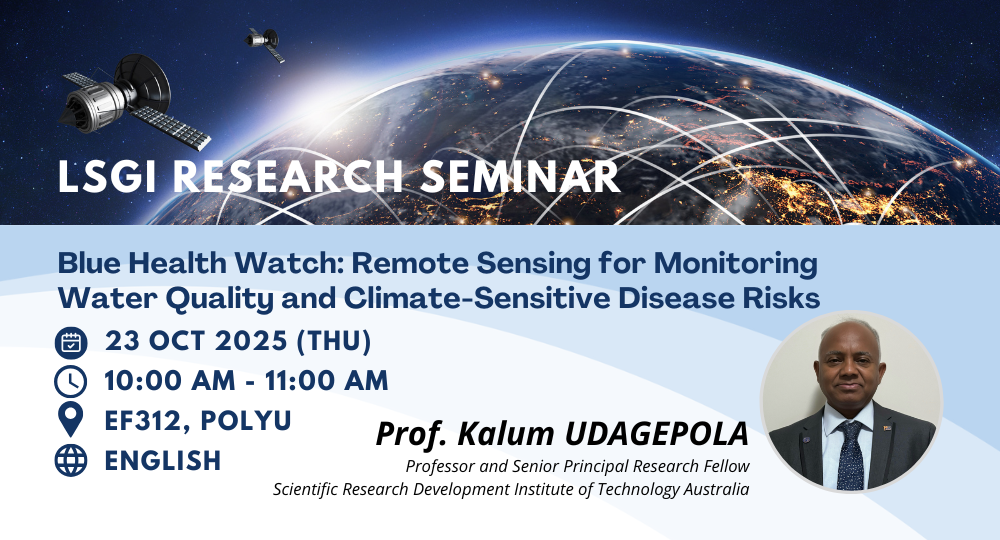Blue Health Watch: Remote Sensing for Monitoring Water Quality and Climate-Sensitive Disease Risks

-
Date
23 Oct 2025
-
Organiser
Department of Land Surveying and Geo-Informatics (LSGI)
-
Time
10:00 - 11:00
-
Venue
EF312 Map
Speaker
Prof. Kalum UDAGEPOLA
Remarks
Moderator: Dr. Majid NAZEER, Research Assistant Professor, LSGI
Summary
Climate change increasingly threatens water security and public health through degraded water quality and rising disease risks. This seminar explores how remote sensing technologies—such as Landsat, Sentinel-2, and MODIS—can monitor key water quality indicators including turbidity, chlorophyll-a, and surface temperature. By linking satellite data with health surveillance, the Blue Health Watch framework offers a low-cost, scalable approach for predicting outbreaks of waterborne and climate-sensitive diseases. The session highlights how integrating Earth observation, machine learning, and public health data can enhance early-warning systems and strengthen climate-resilient health strategies in Australia and the Indo-Pacific region.
Keynote Speaker
Prof. Kalum UDAGEPOLA
Professor and Senior Principal Research Fellow
Scientific Research Development Institute of Technology Australia
Prof. Kalum Udagepola is an expert in environmental remote sensing and water resource management, with distinguished experience spanning climate-health analytics, public health early warning systems, and applied geospatial science. His work focuses on integrating satellite-based Earth Observation, artificial intelligence, and health data to improve water security and disease risk management in vulnerable communities across Australia, the Indo-Pacific, and internationally. Prof. Udagepola has contributed conceptual frameworks and technology for operational surveillance and risk assessment, with a current emphasis on the Blue Health Watch platform. This innovative system leverages satellite, drone, and ancillary datasets to provide predictive, cost-effective, and scalable solutions for water quality monitoring and climate-sensitive disease prevention, in alignment with global health and sustainability goals.




